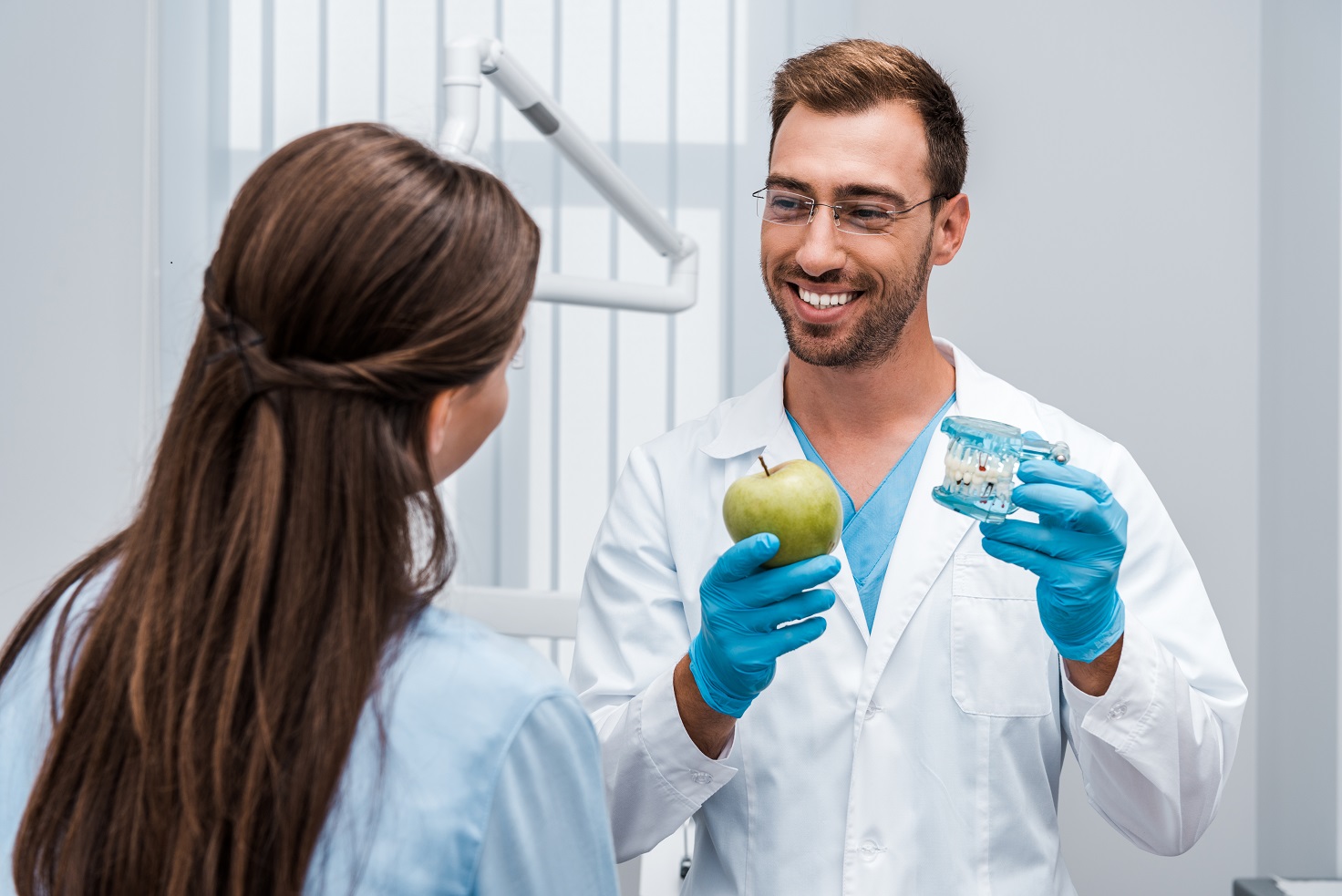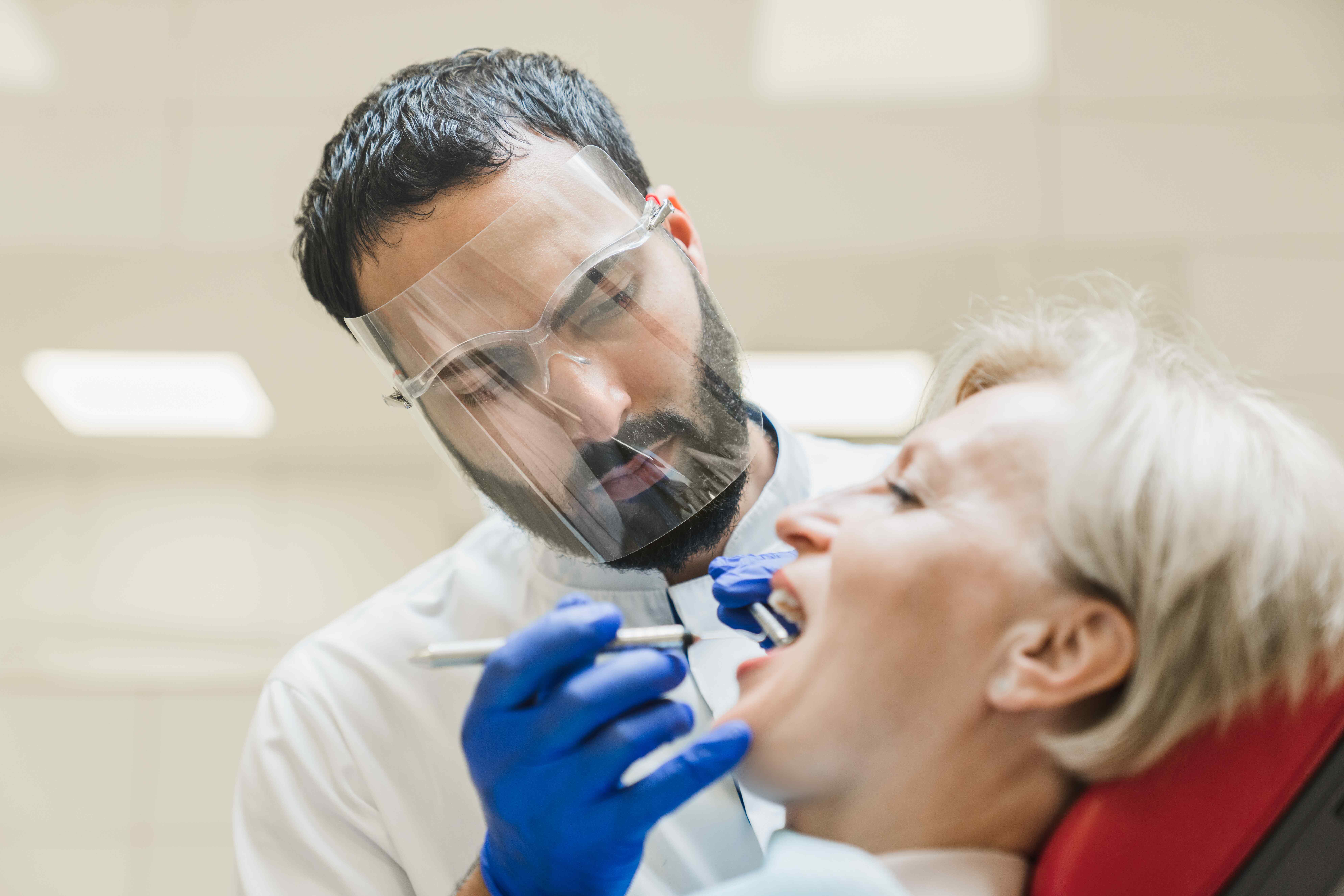Switching to a plant-based or vegetarian diet can offer numerous health benefits—improved heart health, lower…

Overcoming a Dental Emergency on Vacation: Your Comprehensive Guide
Facing a dental crisis while reveling in your holiday throws a wrench in your plans. The thought alone of navigating such mishaps away from your trusted dental practitioner can evoke significant anxiety. Yet, summer vacations, with their adventurous escapades and indulgence in exotic cuisines, unfortunately, bring a spike in such incidents. This guide aims to arm you with knowledge on recognizing signs of dental distress, swiftly securing competent local dental intervention, and underscores the criticality of a post-vacation dental check-up at Apple Valley Dental. This preemptive insight is pivotal in turning a potentially daunting experience into a manageable hiccup, ensuring your vacation memories remain untarnished by preventable dental woes.
Common Dental Emergencies
Common dental emergencies that can disrupt your vacation include toothaches, chipped or broken teeth, knocked-out teeth, lost fillings, and broken crowns. A toothache might signal an infection and requires immediate attention to prevent further complications. Chipped or broken teeth can result from a fall or biting into something hard. A knocked-out tooth is one of the most urgent dental emergencies, requiring prompt action to increase the chances of saving the tooth. Lost fillings or broken crowns can expose sensitive areas of the tooth, leading to discomfort or pain and necessitating quick fixes to prevent infection or further damage.
Recognizing these common issues can assist in assessing the situation accurately and seeking appropriate emergency dental care swiftly, minimizing discomfort and potential long-term impacts on your dental health.
Preventive Measures To Avoid Emergencies
Before setting off on your eagerly anticipated vacation, taking steps to prevent a dental emergency is wise. It’s recommended to visit you’re Apple Valley dentist for a routine check-up, ensuring any looming dental issues are addressed well in advance of your departure. This proactive visit can help spot cavities, loose fillings, or other concerns that might evolve into emergencies while you’re away.
Additionally, assembling a dental emergency kit is an essential preparatory step. This kit should include items like over-the-counter pain relievers, sterile gauze, dental floss, and a small container with a lid in case you need to save a tooth. Don’t forget to include the contact information for your dentist at Apple Valley Dental, as they may offer advice over the phone in case of an emergency.
Knowing the dental care options available at your destination is also beneficial. Researching local dental clinics and saving their contact information could save valuable time in case an emergency arises. Taking these measures before leaving home not only gives you peace of mind but also ensures you’re better equipped to handle any dental issues, allowing you to focus on enjoying your vacation.
Finding Emergency Dental Care on Vacation
Locating an emergency dentist while traveling can initially seem challenging. However, several resources are available to assist you in this situation. First, consider leveraging the local expertise of your accommodation’s front desk or concierge service; they often maintain a list of emergency contacts, including dental services. For more autonomous research, turn to smartphone apps or online search engines, specifying your location to discover dental clinics nearby. Websites of dental associations in the country you’re visiting are invaluable for locating licensed practitioners, especially if you’re concerned about language barriers or the standards of care.
Social media platforms and travel forums may contain recommendations from fellow travelers who have encountered similar predicaments. Remember to verify the credentials and reviews of any dentist you plan to visit to ensure you receive quality care.
If you’re traveling abroach, embassies or consulates can provide assistance in urgent situations to their citizens in locating medical and dental services. While this may not be the most expedient route in an emergency, it’s an alternative worth considering, especially if you face challenges navigating the local healthcare system.
Having the local emergency number at hand, akin to dialing 911 in the United States, is also vital. This number can connect you to emergency services, which can then guide you to the nearest dental clinic equipped to handle urgent cases. By employing these strategies, finding an emergency dentist while on vacation can be simplified, ensuring you get the care you need with minimal stress.
What Your Emergency Dentist Will Need to Know
Upon securing an appointment with an emergency dentist during your vacation, it’s crucial to compile and share a comprehensive account of your dental history.
- Begin by detailing the onset and progression of your symptoms, focusing on the type and location of any discomfort or pain you’re experiencing.
- If you remember any actions or foods that worsened the problem, include those details, as they can provide valuable insights to the dentist.
- Equally important is to inform them of any recent dental procedures you’ve had, even if they seem unrelated, as well as a list of medications you’re currently on, including any over-the-counter pain relievers used to manage the symptoms.
- Additionally, revealing your medical history, especially conditions like diabetes, heart disease, or allergies to medications, can profoundly affect the treatment plan the dentist formulates.
Providing a detailed overview ensures the emergency dentist can offer the most effective, immediate care, tailored to your specific needs.
Managing Pain Until You Find Dental Care
In the interim period before you’re able to visit an emergency dentist, effectively managing your discomfort is crucial. Over-the-counter medications, such as ibuprofen or acetaminophen, can be effective for alleviating toothache and reducing inflammation. Make sure to follow package instructions and be conscious of any personal health conditions that may influence their use.
Applying a cold compress on the cheek nearest to the suffering area can also help reduce swelling and numb pain temporarily. This should be done in intervals of 20 minutes on and 20 minutes off to avoid any potential skin damage from the cold.
Additionally, try to keep your head elevated, even when sleeping, to limit blood flow to the area, which can assist in reducing both pain and swelling. Likewise, eating soft foods and avoiding extreme temperature drinks can prevent further aggravation of the affected tooth or area in the mouth. If a tooth is chipped or broken, consider covering the jagged edge with dental wax or sugar-free gum to protect your tongue and cheeks from cuts.
Lastly, rinsing your mouth with warm saltwater several times a day can help disinfect the area around the affected tooth and might alleviate pain. It’s a gentle, natural remedy that can soothe discomfort and maintain oral hygiene, but it shouldn’t replace professional dental care.
Following Up with Your Home Dentist
After addressing your immediate dental concerns while away, it’s important to arrange a visit with your dentist at Apple Valley Dental upon your return. This crucial step is not merely about follow-up; it represents an essential bridge between the emergency care received and the long-term management of your dental health.
A thorough examination by your dentist is necessary to confirm that the temporary measures taken were not only effective but also comprehensive, covering all bases to avoid any lurking issues that could escalate. Your Apple Valley dentist’s expertise allows for a comprehensive review, ensuring that any subtle complications or nuances missed during the emergency treatment are identified and addressed.
Furthermore, this visit opens a valuable dialogue between you and your Apple Valley Dental provider, allowing you to collaboratively update your dental care plan. This may involve integrating new preventive strategies tailored to circumvent future emergencies, thus fortifying your oral health against potential threats.
Sharing the specifics of any treatments you received abroad ensures that your dental history remains cohesive, enabling the team at Apple Valley Dental to make informed decisions about any subsequent steps. Such continuity in care is instrumental for effective oral health management, knitting together your dental history into a coherent narrative that allows for preemptive action and supports long-term dental well-being.
Regular Dental Care Is Key in Preventing Emergencies
Adopting a solid oral hygiene regimen is crucial in avoiding potential dental emergencies, especially during vacations when normal routines may be disrupted. Diligent brushing twice daily, using fluoride toothpaste, and flossing at least once a day are foundational to preventive dental care. These habits assist in preventing tooth decay and gum disease, the main culprits behind dental discomfort and emergencies.
The role of diet in oral health is also critical. Eating a balanced diet low in sugary snacks and drinks can greatly lower the risk of cavities and other dental issues. Staying regularly hydrated, particularly with water, helps in keeping optimal saliva flow, which naturally cleanses the teeth and gums.
Moreover, routine dental check-ups at Apple Valley Dental are crucial in preventing emergencies. These appointments allow for the early identification and treatment of problems before they become urgent. Professional cleanings during these visits eliminate plaque and tartar buildup, which might not be removed by brushing and flossing at home.
Maintaining consistent oral care practices, alongside regular dental check-ups, builds a defensive barrier against dental emergencies. These preventive strategies not only protect oral health but also ensure that vacation time remains a period of relaxation and joy, undisturbed by the unforeseen disruptions of dental emergencies.
Our caring team at Apple Valley Dental is here to serve patients in the Front Royal , VA area. Contact us today to make an appointment for a consultation. Your dental health and bright smile are our priorities!


